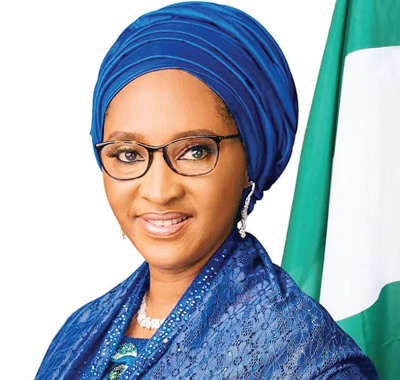
Ahmed said this on Monday in Abuja at the 28th Nigerian Economic Summit.
The News Agency of Nigeria reports that the theme of the summit this year was ‘2023 and Beyond: Priorities for Shared Prosperity’.
According to the minister, the government had earlier formulated the National Development Plan 2021- 2025 to succeed the Economic Recovery and Growth Plan 2017- 2020.
“We are in the second year of the NDP 2021-2025 with the private sector taking the lead.
“Although, challenged by a shortfall in revenues, the government has kept its pact by prioritising capital releases in favour of ongoing critical infrastructural projects in power, roads, rail, agriculture, health and education sectors.
“This is with a view to strengthen the Nigerian economy post COVID-19 pandemic,” she said.
The minister added that resources were being mobilised with less emphasis on oil revenues.
She said that financing of the NDP 2021-2025 would rely heavily on domestic resource mobilisation from non-oil revenue sources through the results of the Strategic Revenue Growth Initiative and Finance Acts.
“This will improve and further diversify government revenues and entrench fiscal prudence and value for money,” she said.
Ahmed further stressed that the theme for this year’s NES was carefully chosen to provide direction for stakeholders to examine the progress the present government had made in delivering the NDP 2021-2025.
She said that the Nigeria Agenda 2050, which would be inaugurated soon, seeks to increase the country’s per capita Gross Domestic Product to $33,000.
Ahmed commended the President, Major General Muhammadu Buhari (retd.), for his continuous support to the NESG in the last seven years.
She said that the collaboration between the finance ministry and the group had provided the platform for regular dialogue and engagement with the private sector and other stakeholders.
NAN





